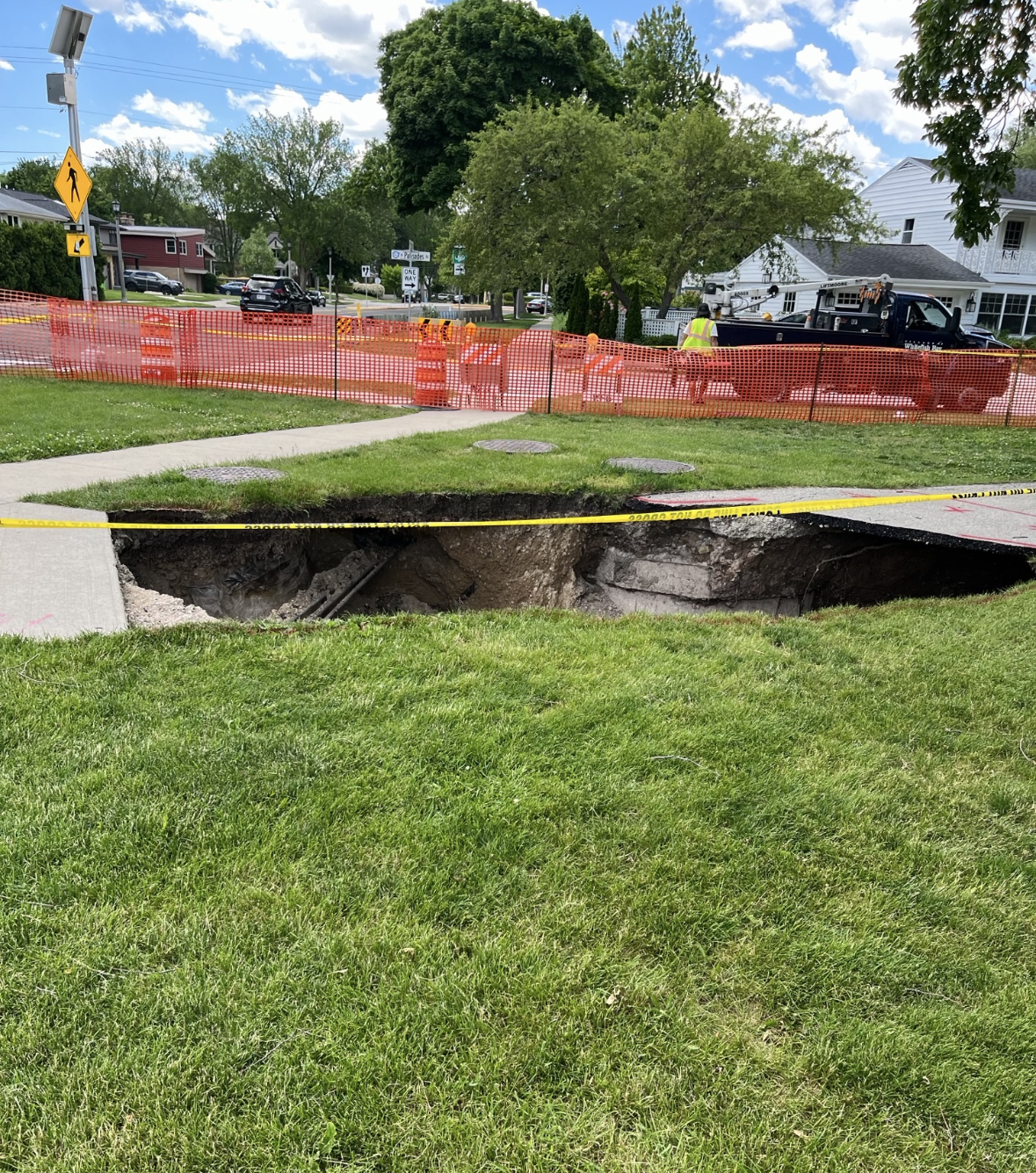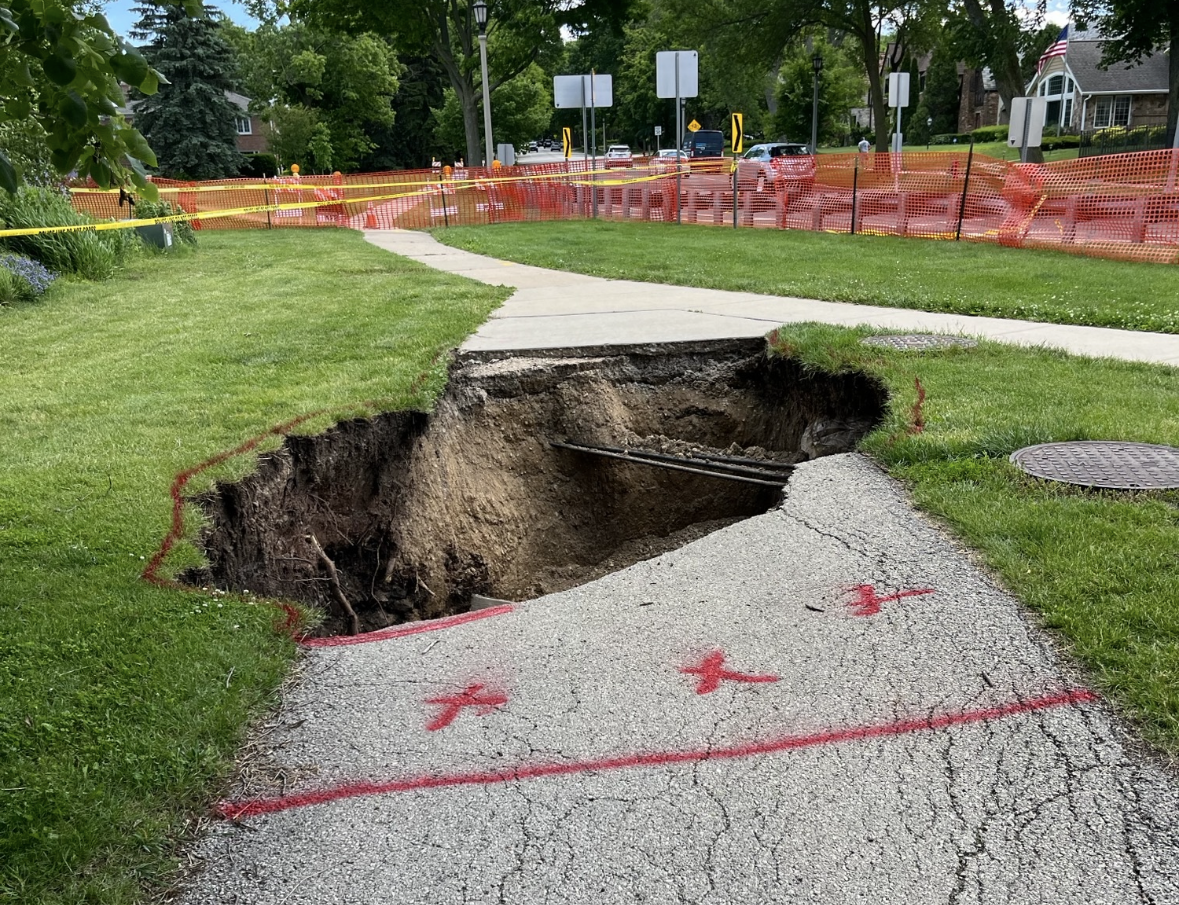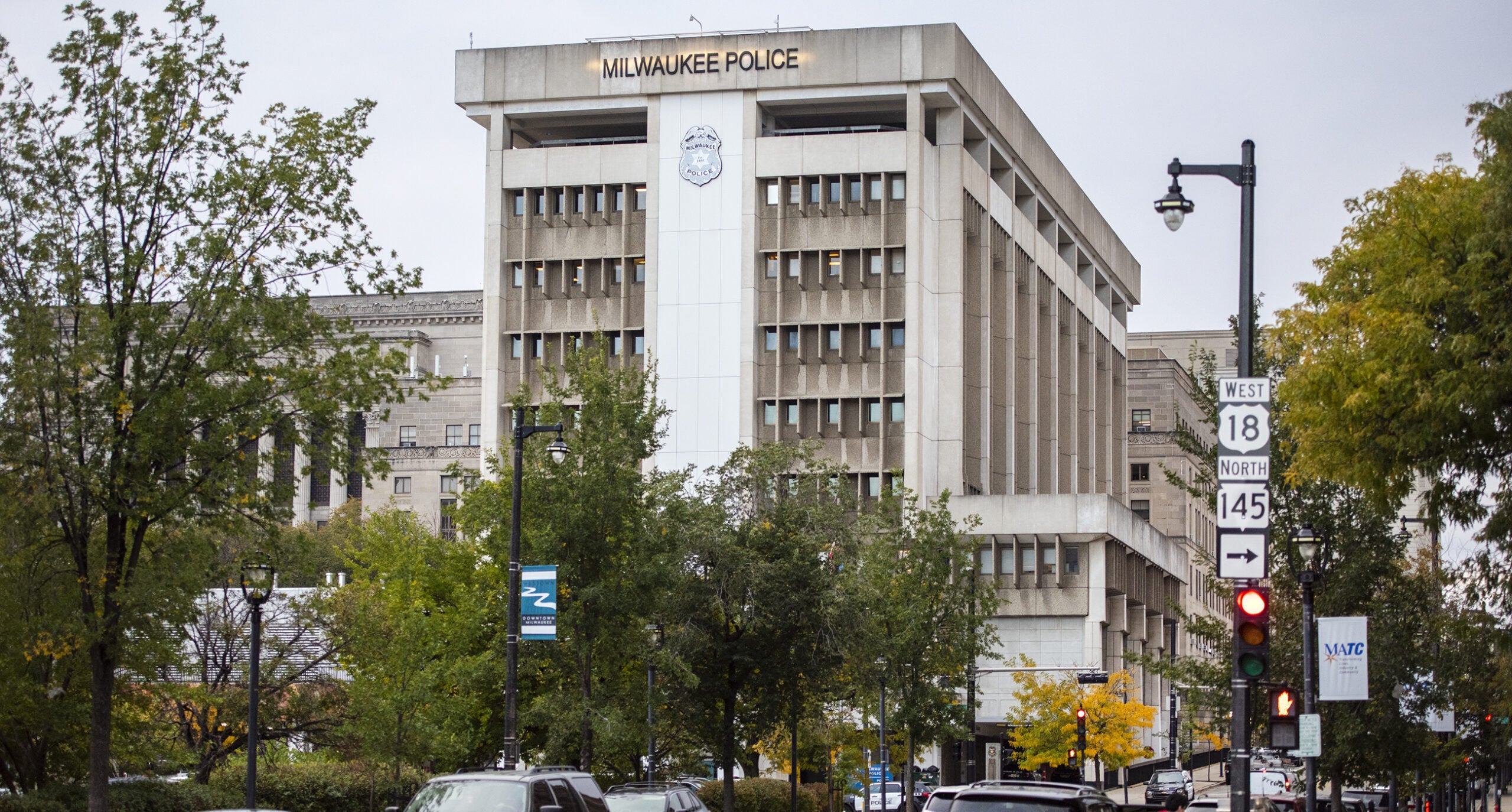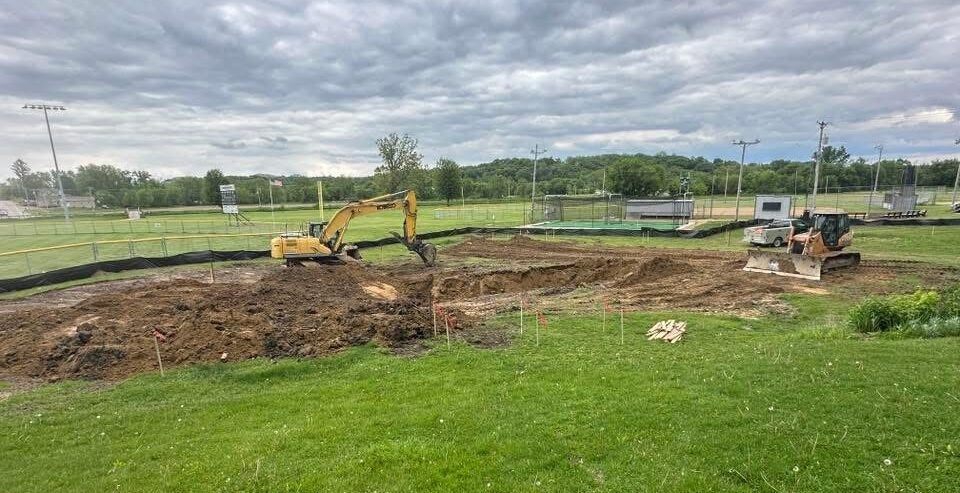Emergency repairs are underway in Milwaukee County after a sewer line failed and caused a 30-foot sinkhole.
On Tuesday, the village of Whitefish Bay issued a public emergency to speed up repairs and protect public health.
Matt Collins, the village’s director of Public Works, joined WPR’s “Wisconsin Today.” He said the sinkhole opened up over the weekend where Big Bay Park and Buckley Park connect, which is a heavily trafficked area.
News with a little more humanity
WPR’s “Wisconsin Today” newsletter keeps you connected to the state you love without feeling overwhelmed. No paywall. No agenda. No corporate filter.
“When it collapsed 70 feet deep, the earth kept on eroding all the way down,” Collins said.

According to Collins, the sinkhole happened after one of the village’s seven sewage basins failed, which is meant to collect and contain stormwater. When operational, the basin drains directly into Lake Michigan.
“That water has to go somewhere with the next rainfall event,” he said. “So there’s a sense of urgency to take care of emergency repairs.”
Collins said the repairs happening 70 feet underground are challenging and also temporary. Village officials are talking with engineers and contractors to find permanent solutions.
The sewer line failure comes as no surprise to Ken Mika, regional director of the Wisconsin section of the American Society of Civil Engineers.
He spoke with “Wisconsin Today” about the conditions of the state’s sewer infrastructure and said there isn’t enough funding to keep America’s infrastructure from situations like the one in Whitefish Bay.
“If the infrastructure is aging, cracks will open up in the piping systems and then that will start pushing soil around the pipe. Then you start having sinkholes like you just had happen,” Mika said.
According to Collins, the village of Whitefish Bay is the second densest population per capita of Wisconsin’s villages.
That can have a big impact on things like sewage basins.
“The greater the density, the greater infrastructure needed for that area, especially in urban settings where residents are packed together,” Mika said.
This month, the American Society of Civil Engineers is preparing to release its state report card on infrastructure, which is completed every four years. In 2020, the state’s stormwater infrastructure received a C grade from the ASCE.
According to Mika, investments in aging infrastructure should be made “as soon as possible.”
He said the state’s water systems received $1 billion from the 2021 Infrastructure Investment and Jobs Act, which is “a small amount to help take care of that.”
“The best course of action when there’s funding available is to reevaluate the size of the system,” Mika said. “Then replace those needed to ensure that the operating system underground is able to take the full capacity of what’s being provided to it from the surface.”
As Mika calls for additional funding, Collins faces uncertainty over the cost to repair the village’s aging sewer line.
“Our primary objective right now is to get a pipe in the ground,” he said. “If we don’t do that, then you’re talking about flooded streets, and we don’t want that to happen.”
Wisconsin Public Radio, © Copyright 2025, Board of Regents of the University of Wisconsin System and Wisconsin Educational Communications Board.







